Great Yarmouth: 'The people behind the seafront feel left behind'
- Published
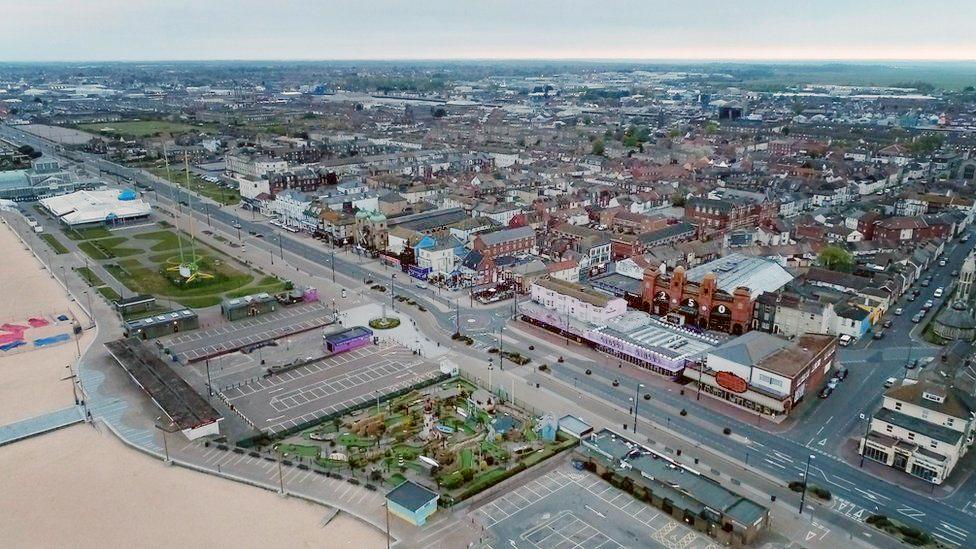
Average weekly earnings and disposable income are lower in Great Yarmouth than the rest of Norfolk - but unemployment is higher
The Communities on the Edge report, published on Wednesday, reveals that nearly one in five jobs in coastal communities pay below the living wage and warns that levelling-up policies are at risk of failing to turn around decades of inequality. It points to the East of England, which has the third-highest regional average weekly pay despite parts having some of the lowest earnings in the country.
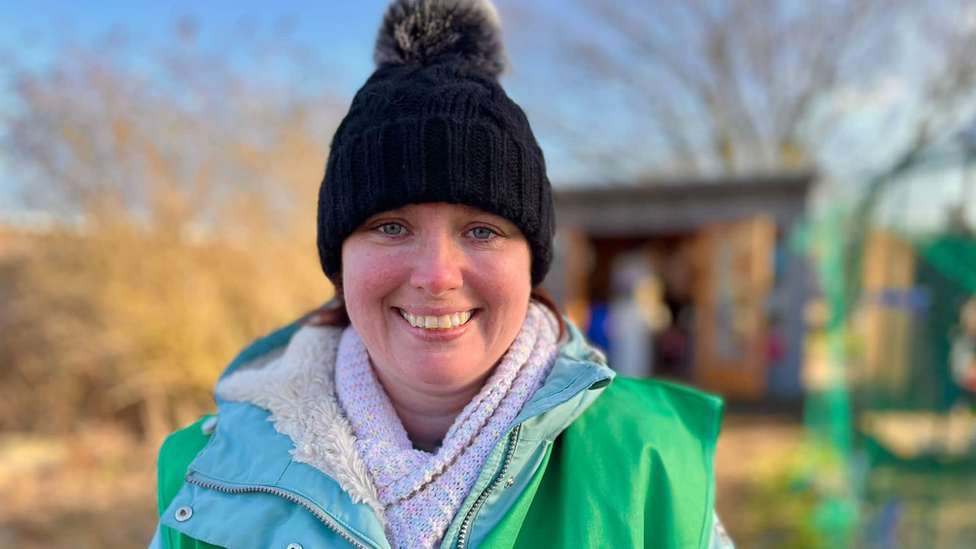
Sandy Lysaght has been looking for permanent work in Great Yarmouth for 19 years
If anyone knows about the challenges of finding work in a coastal community, it is Sandy Lysaght.
The 38-year-old, from Great Yarmouth, Norfolk, has spent the last 19 years trying to find something permanent.
"When you do get an opportunity like a seasonal job or cleaning work it doesn't pay very well and as soon as the seasonal work ends, you've then got to go back on to universal credit and that is a struggle because of the wait time," she says.
Sandy, who left school with few qualifications, says a lot of the jobs are in engineering or involve driving - neither of which she can do - or travelling.
She is a single mother."I want to wake up and do something that I really enjoy that is worthwhile, but I feel that we're not looked at as being people that really deserve it, that we're not really worth it," she says.
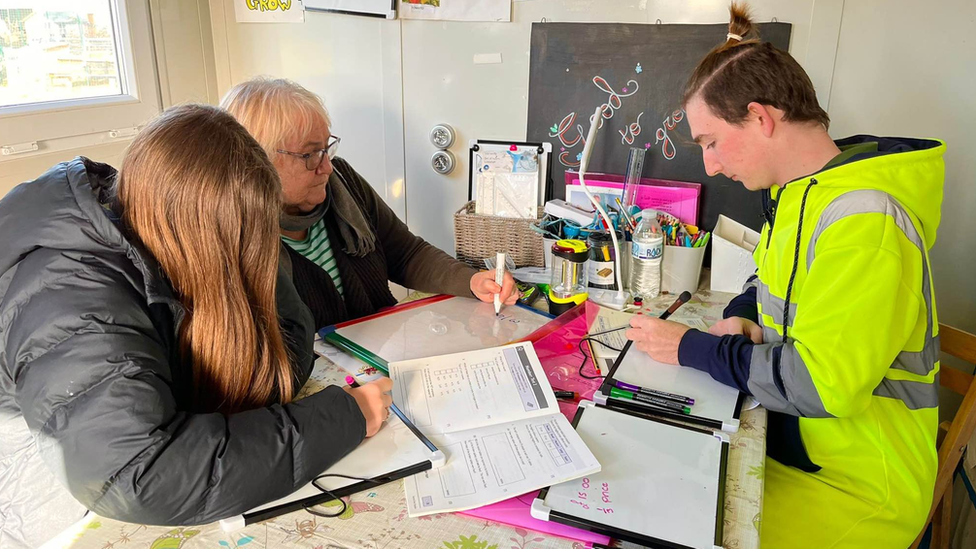
The Bread Kitchen supports local people get qualifications and work experience
A new report, from a group of researchers including the University of Essex, concluded that coastal communities were still in critical need, their deprivation hidden by the overall success of a region.
The report found that in the East of England, the average weekly wage is £549.
But in Great Yarmouth it is £479, in North Norfolk it is £430, East Suffolk £482 - and in Tendring, in Essex, it is £481.
The unemployment rate for the East of England is 2.8% - but in Great Yarmouth and Tendring it is 3.9%. The average disposable income in the region is £22,310 but in Great Yarmouth, it is £16,600.
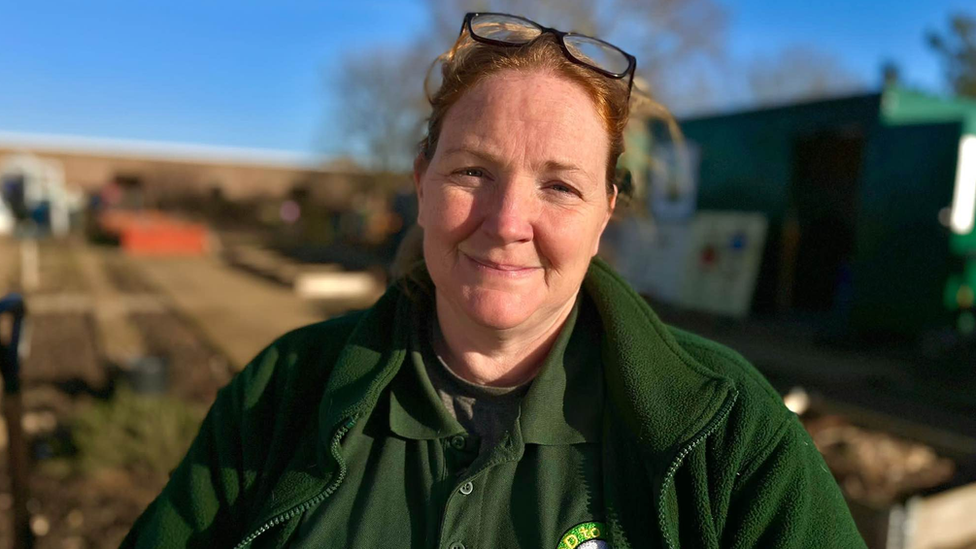
Cathy Cordiner-Achenbach says coastal communities need more support
Sandy works part-time as a well-being manager at the Bread Kitchen, a community group in Great Yarmouth that helps locals get work experience and qualifications in subjects like maths and English, animal care and horticulture.
"There is a desperate need, particularly here, where we've got some of the highest rates of deprivation and unemployment," says co-founder Cathy Cordiner-Achenbach, who is also a Labour local councillor.
"We're working with people with disabilities, people with mental health concerns and single parents.
"There are a lot of barriers that are stopping people being able to access mainstream training or employment.
"I think there is a sense here of feeling left behind and that, while people notice the offshore energy industry or the tourism, the people behind the seafront don't count any more."

The Bread Kitchen is supporting Jamie Shackleton's quest to gain qualifications
Jamie Shackleton, 19, from Great Yarmouth, is getting support at the Bread Kitchen to pass GCSE maths.
He says he expects it to be a struggle to find work locally.
"For beginners looking for a job, they're probably going to find it hard to find anything within their possible reach," he says.
Scotty Rodger, 30, also says she has had little support to find work.
"In most places nowadays, if you don't have work experience, they don't want you," she says.
"They should just give you that experience while you're at that job."

Scotty Rodger believes workers should be able to learn on the job so their experience is boosted
Last month, the government gave £20m to the resort to help redevelop the North Quay area. The council has also received funding for a new river crossing, a new sixth form has recently opened - and there are a number of training initiatives under way.
Cathy says any extra spending is welcome - although she wonders if it is going to the right places.
And she says that after years of neglect, Great Yarmouth and other coastal communities in the region need a lot more.

Unemployment is higher in Great Yarmouth than other parts of Norfolk
The Department for Levelling Up, Housing and Communities said coastal communities "play a key role in levelling up and we continue to support them to improve their economies".
"Since 2012 we have invested over £229m through the Coastal Communities Fund to run 359 projects throughout the UK's rural and coastal communities helping to create jobs and boost businesses."
It added Levelling Up funding of £2.1bn announced earlier this month - to be shared across more than 100 places nationally - would help "to create better-paid jobs and spread opportunity right across the country".

Find BBC News: East of England on Facebook, external, Instagram, external and Twitter, external. If you have a story suggestion email eastofenglandnews@bbc.co.uk, external
Related topics
- Published29 January 2023

- Published4 March 2021
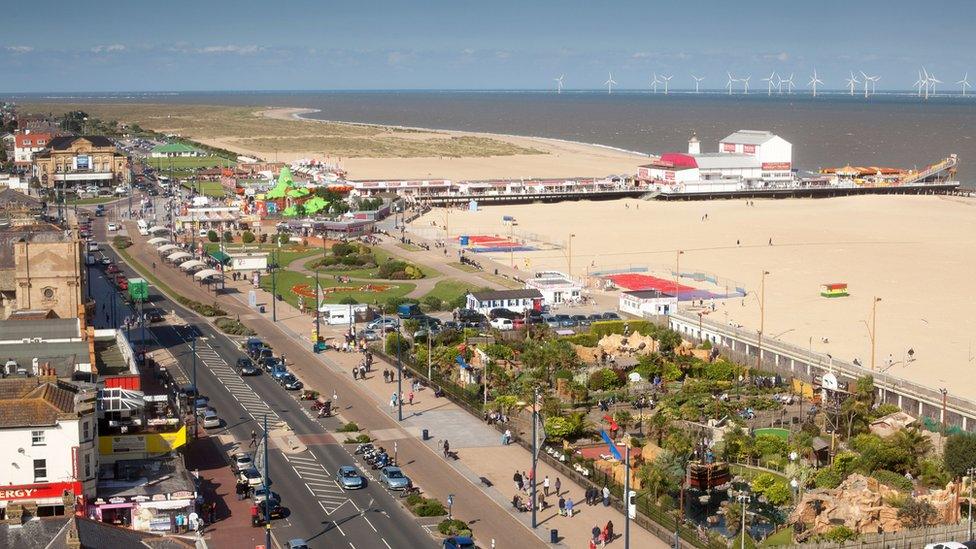
- Published16 February 2021

- Published7 May 2019
